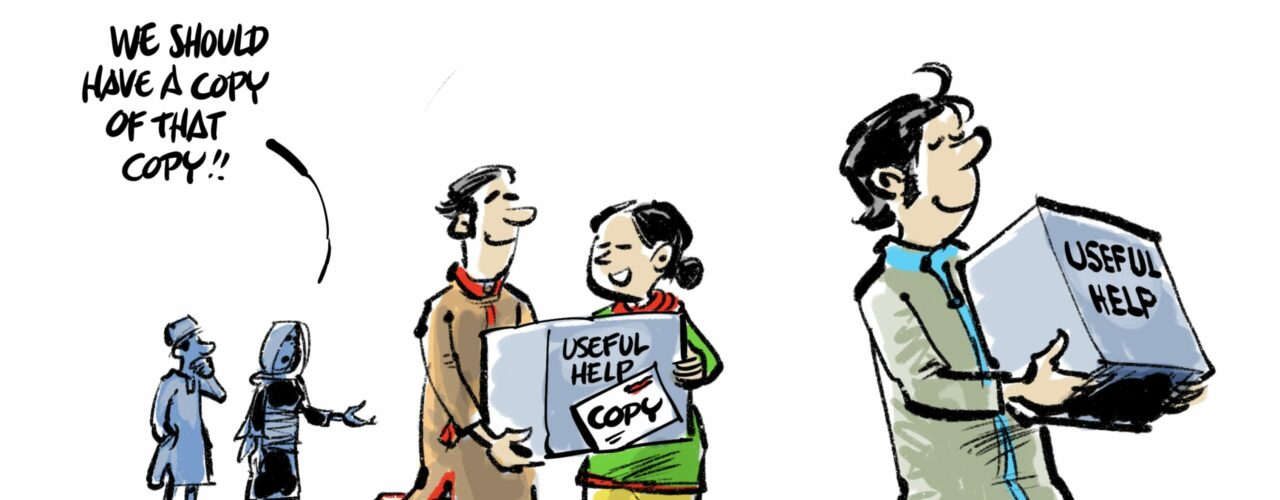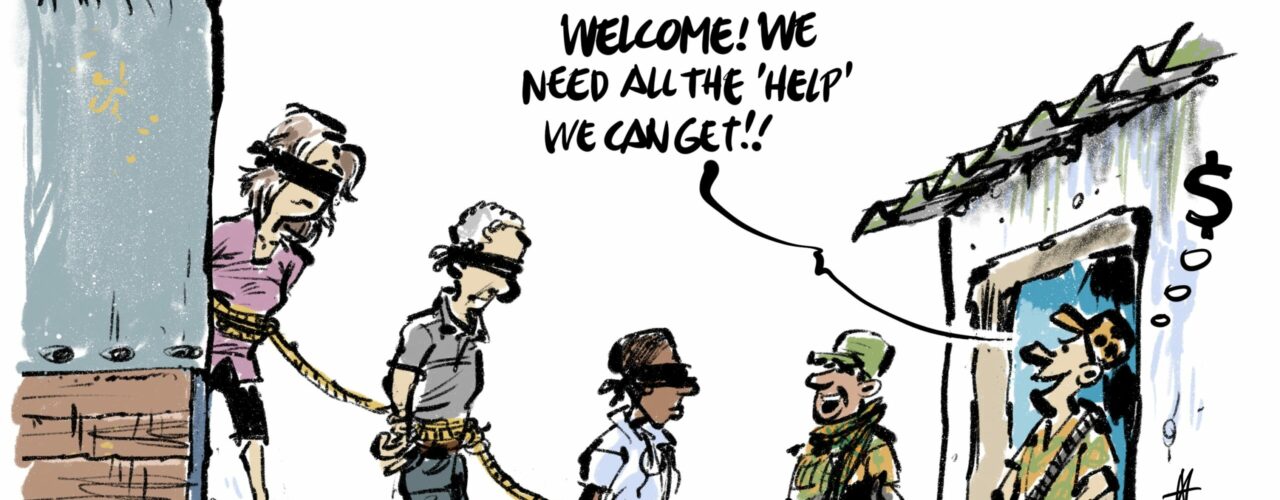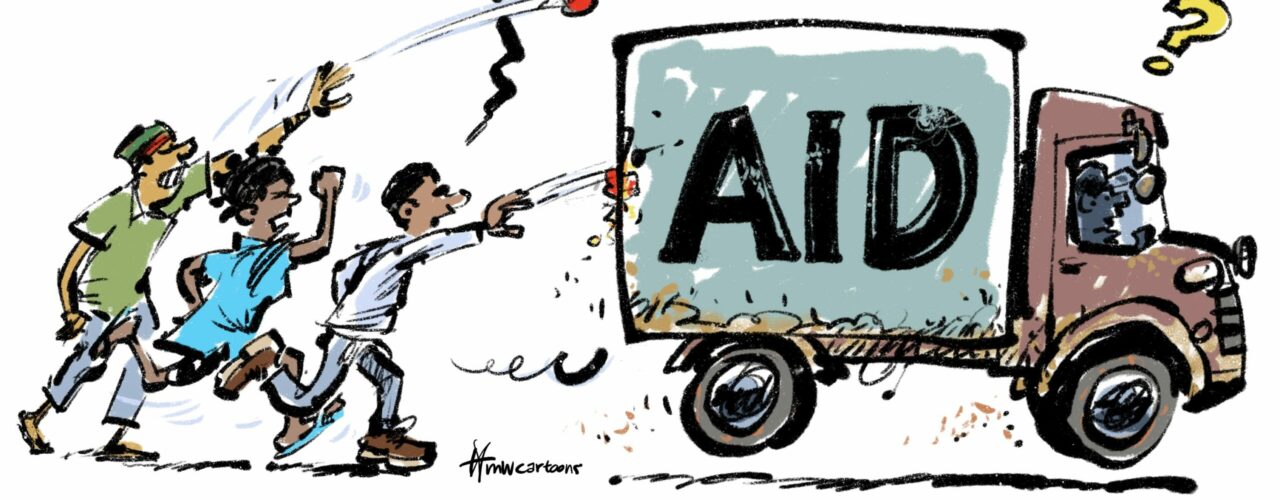About Dirk Jan
Dirk Jan Koch; diplomat, writer and social scientist works as the Chief Science Officer of the Ministry of Foreign Affairs and is a Professor on the International Trade and Development Cooperation at the Radboud University. Seven years ago he started writing a book: ‘Foreign aid and its unintended consequences’, a book that is almost about to be released.
What was your motivation for writing this book?
I have the feeling that many people in the sector are struggling with a number of themes that I also struggle or struggled with. By writing this book I can hopefully help people structure their thoughts and start a conversation about the themes that I discuss in the book. I have the feeling that the unintended consequences of humanitarian projects are often insufficiently highlighted.
I honestly wish I had a book like this when I was in college twenty years ago.
Are you talking about a different way of looking at aid organisations and their work?
Yes, and this has two different aspects. First of all: aid organisations often think linearly. Organisations measure with the goal of reaching targets or funding money. I try to show that humanitarian aid is more complicated than that and that you have to take more factors into account. Secondly, we need to work much more with local people, researchers and universities to see how a project is experienced instead of using our own people and measuring methods to see how a project is going.

Do you say that aid organisations should work in a different way?
I think so. That’s why I also apologize at the beginning of the book whereas I have also been pushing organisations in this linear straightjacket. Organizations often make efforts to put local actors in the centre, but in practice this often does not go well or not well enough. We live in a world that is very donor-driven and therefore there is a high chance for aid organisations of getting tunnel vision. This means that there is less attention for the unpredicted consequences of projects and critical reflection is lacking. Or it is done but not shared with others.
Honest dialogue between aid organizations is necessary.
What do you hope and expect when organizations enter into dialogue?
I hope that organizations encourage each other to take the unforeseen consequences into account, especially in implementing new programmes. For example: little is said about the theme of ‘kidnappings’, because it is such a sensitive topic. Let’s talk more about that, even though it will not always be easy!
Don't you think that there will be more and more unforseen consequences over time?
Certainly. As far as I’m concerned, the book is an invitation for organisations to explore this field of unforseen consequences. It’s about a way of seeing – and once you start looking at it, you’ll see it much better. That is exactly what I want to achieve with the book. That organisations are more open to see the consequences, are willing to take them into account, make a plan how to deal with the situation ánd are ‘strong enough’ to share the knowledge with others.

What are unexpected effects that hit you while writing the book?
I will start with a positive effect. I taught at university in Congo and had discussed a lot about development aid over the whole semester that I was working there. At the end of the series of lectures, I asked the students whether humanitarian aid helped or not. A student raised her hand and told us that her cousin had been working for Caritas for ten years and earned money while doing so. This created the possibility for her to go to university and have a good job. That would never have been possible if her cousin hadn’t had that position and the corresponding salary. A total different answer than I was expecting, but powerful to keep in mind.
A negative effect that is also mentioned in the book is, for example, the attention for sexual violence in Congo some years ago, that led to many arrests. People were encouraged to report sexual abuse. Because people received perks after reporting, many innocent people ended up behind bars. That is a great pity because you want the right people to be entitled to justice.

Which ‘problems’ did you run into while writing the book?
To be honest, it was very difficult to write this book and the whole process took me about seven years. To get an honest story, organizations needed to open up and show their vulnerable side. And as you may understand, that was not always easy. Fortunately, along the way there were organizations that did open up – the examples can be found in the book. They also realized that it would only help them in the end and that they could use the information that I gathered to improve their projects.
I have also had a ‘no’ to a request very often. Organizations want you to look at and evaluate the planned consequences rather than focusing on the unplanned consequences.
How do you think the book will be received?
Thank you for this question. Of course I know that the reactions will not only be positive. And it’s not the first time that I have to make certain decisions: I have faced these dilemmas before. In my dissertation, I focused on the question whether aid is equally distributed around the world or if there are also ‘donor darlings’. This certainly turned out to be the case, shocking but true. Many people advised me not to publish my findings but I think it provided a learning opportunity and decided to share the results anyway.
I hope that people will be inspired to take a fresh look at their own projects and to work constructively and critically to improve their own way of working.
Order the book
https://www.routledge.com/The-Unintended-Effects-of-Aid-and-Development/Koch/p/book/9781032412146
or download the book here.
Date: 4th of September 2023
Author: Marianne Sijtsma
